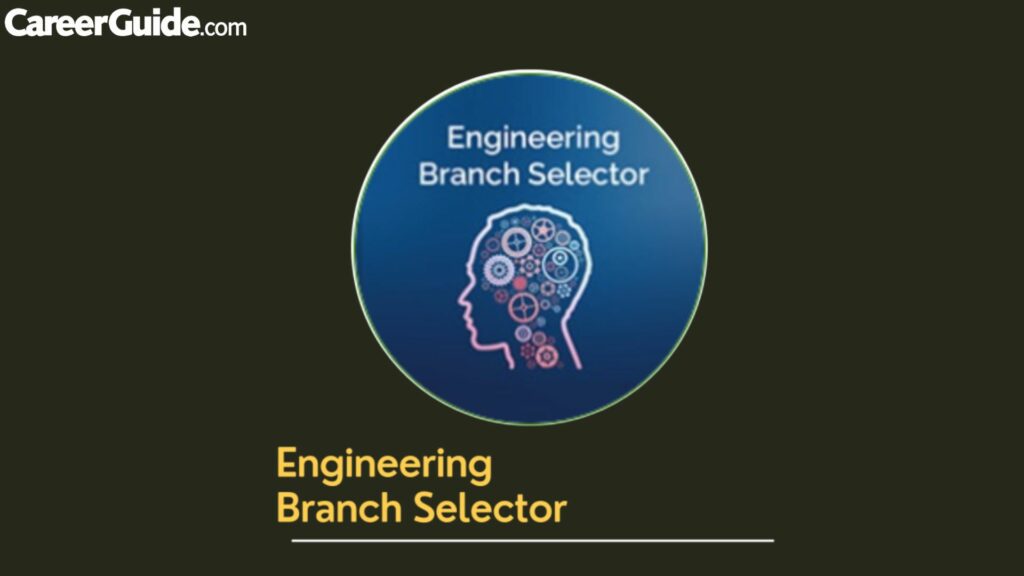The 11th and 12th grades are a time when students must pick which path of further education to pursue. This is when you must pick between various educational paths, a decision that will affect you for the following 3-6 years, and in certain situations, even longer. Online Psychometric Test For Senior High School Students. When this decision is made correctly, pursuing further education will be a time to be envied for the rest of your life, as you will spend the next three or four years doing what best suits your personality and talent. A student who has passed 12th standard or is about to graduate has several options for moving forward online psychometric test will help you choose your real calling:
The most common type of psychometric test used in senior high school is aptitude testing. Aptitude tests evaluate a student’s abilities in areas such as verbal reasoning, numerical reasoning, spatial awareness, and mechanical reasoning. These tests help to identify a student’s strengths and weaknesses in various areas and can indicate the types of careers they may be well-suited for.
Ideal Career Test
The Ideal Career Test is a comprehensive assessment tool designed to assist individuals in identifying suitable career paths that align with their interests, skills, values, and personality traits. This test aims to provide valuable insights into the types of occupations and work environments that would be a good fit for an individual, helping them make informed decisions about their career choices.
The test begins by evaluating an individual’s interests and passions. It explores their preferences for various activities, hobbies, and subjects. This assessment helps identify areas that genuinely captivate the individual and can guide them towards career paths that align with their personal interests.
The assessment also evaluates an individual’s skills and aptitudes. It explores their strengths in different areas such as problem-solving, communication, creativity, leadership, and technical abilities. By understanding their skill set, individuals can identify careers that allow them to leverage their natural talents and develop their potential.
Another essential aspect of the Ideal Career Test is the evaluation of an individual’s values and work preferences. It explores their desired work-life balance, preferred work environment, level of independence, and desire for social interaction. Understanding these factors helps individuals find careers that match their values and provide a satisfying work experience.
Personality traits are also a crucial part of the assessment. The test explores an individual’s personality dimensions, such as extroversion/introversion, openness to new experiences, conscientiousness, emotional stability, and agreeableness. By considering their personality profile, individuals can identify careers that align with their temperament and work styles, as well as occupations that provide a conducive environment for personal growth and job satisfaction.
After completing the Ideal Career Test, individuals receive a detailed report outlining their interests, skills, values, personality traits, and recommended career paths. This report serves as a valuable resource for making informed decisions about career choices, setting realistic goals, and pursuing further education or training.
Humanities Career Selector Test
The Humanities Career Selector Test is a specialized assessment tool designed to help individuals explore and identify suitable career paths within the field of humanities. It aims to assess an individual’s interests, skills, values, and personality traits specifically related to the humanities disciplines, providing insights into potential career options within this broad field.
The test begins by evaluating an individual’s interests in various humanities subjects such as literature, history, philosophy, art, and culture. It explores their preferences for engaging with these subjects and helps identify areas of particular fascination. This assessment assists individuals in narrowing down their interests within the humanities and identifying potential career paths that align with their passion.
In addition to interests, the test evaluates an individual’s skills and aptitudes relevant to the humanities. It examines their abilities in critical thinking, research, analysis, writing, communication, and cultural understanding. By understanding their skills within the humanities, individuals can explore careers that allow them to leverage their strengths and contribute meaningfully to the field.
The assessment also takes into account an individual’s values and work preferences within the humanities. It explores their desired work environment, preferred methods of engagement (e.g., research, teaching, creative expression), and potential areas of social impact. Considering these factors helps individuals find careers within the humanities that align with their values and provide a sense of purpose.
Personality traits are another important aspect of the Humanities Career Selector Test. It assesses dimensions such as intellectual curiosity, creativity, empathy, and a passion for lifelong learning. By understanding their personality profile, individuals can identify humanities careers that align with their natural inclinations and work styles, fostering personal fulfillment and professional growth.
Upon completion of the Humanities Career Selector Test, individuals receive a comprehensive report outlining their interests, skills, values, personality traits, and recommended career paths within the humanities. This report serves as a valuable resource for making informed decisions about academic pursuits, such as choosing a humanities major or exploring specialized fields of study.
We may learn about a candidate’s preferred method of communication, how they handle setbacks, and how they would manage a team by assessing and understanding their behavioral style. This kind of knowledge is critical for finding areas for improvement, increasing engagement, and determining whether or not a person is a suitable cultural fit for a team or organization. Dominance, Influence, Stability, and Compliance are used to determine a person’s anxieties, motivators, values, and behavioral style. This also helps us to understand what are the different types of psychometric tests.
Candidates must choose two trait descriptors from a block of four, one ‘most like’ and one ‘least like’, to complete the PPA. This process is repeated 24 times, yielding 48 options out of a total of 96. Rather than comparing scores from a comparison group, an individual’s reaction patterns are compared to themselves.
Commerce Career Selector Test
The Commerce Career Selector Test is a specialized assessment tool designed to assist individuals in exploring and identifying suitable career paths within the field of commerce. This test aims to evaluate an individual’s interests, skills, values, and personality traits specifically related to the commerce disciplines, providing valuable insights into potential career options within this diverse field.
The test begins by assessing an individual’s interests in various commerce subjects, such as accounting, finance, marketing, economics, and business management. It explores their preferences for engaging with these subjects and helps identify areas of particular interest. This assessment assists individuals in narrowing down their interests within the commerce field and identifying potential career paths that align with their passion.
In addition to interests, the test evaluates an individual’s skills and aptitudes relevant to commerce. It examines their abilities in quantitative analysis, financial management, problem-solving, communication, leadership, and entrepreneurship. By understanding their skills within commerce, individuals can explore careers that leverage their strengths and provide opportunities for professional growth.
The assessment also takes into account an individual’s values and work preferences within commerce. It explores their desired work environment, preferred levels of responsibility, potential areas of specialization, and desired work-life balance. Considering these factors helps individuals find commerce careers that align with their values, provide job satisfaction, and offer suitable work dynamics.
Personality traits are another important aspect of the Commerce Career Selector Test. It assesses dimensions such as analytical thinking, attention to detail, risk tolerance, adaptability, and interpersonal skills. By understanding their personality profile, individuals can identify commerce careers that align with their natural inclinations and work styles, promoting personal fulfillment and career success.
Upon completion of the Commerce Career Selector Test, individuals receive a comprehensive report outlining their interests, skills, values, personality traits, and recommended career paths within the commerce field. This report serves as a valuable resource for making informed decisions about academic pursuits, such as choosing a commerce-related major or exploring specialized areas within the field.
Engineering Branch Selector Test
The Engineering Branch Selector Test is a specialized assessment tool designed to assist individuals in exploring and identifying suitable branches or disciplines within the field of engineering. This test aims to evaluate an individual’s interests, skills, values, and personality traits specifically related to the various branches of engineering, providing valuable insights into potential career paths within this diverse and rapidly evolving field.
The test begins by assessing an individual’s interests in different areas of engineering, such as mechanical, electrical, civil, chemical, computer, or aerospace engineering. It explores their preferences for working with machines, structures, electronics, software, or specific applications. This assessment assists individuals in narrowing down their interests within engineering and identifying potential branches that align with their passion.
In addition to interests, the test evaluates an individual’s skills and aptitudes relevant to engineering. It examines their abilities in problem-solving, mathematical analysis, technical knowledge, design thinking, programming, or laboratory work. By understanding their skills within engineering, individuals can explore branches that allow them to leverage their strengths and contribute meaningfully to their chosen field.
The assessment also takes into account an individual’s values and work preferences within engineering. It explores their desired work environment, preferred level of hands-on work, teamwork dynamics, or potential areas of societal impact. Considering these factors helps individuals find engineering branches that align with their values, provide job satisfaction, and offer opportunities for professional growth.
Personality traits are another crucial aspect of the Engineering Branch Selector Test. It assesses dimensions such as logical thinking, attention to detail, creativity, problem-solving approach, and collaborative skills. By understanding their personality profile, individuals can identify engineering branches that align with their natural inclinations and work styles, fostering personal fulfillment and career success.
Upon completion of the Engineering Branch Selector Test, individuals receive a comprehensive report outlining their interests, skills, values, personality traits, and recommended engineering branches. This report serves as a valuable resource for making informed decisions about academic pursuits, such as choosing an engineering major or exploring specialized fields within the discipline.
Professional Skill Index
The Professional Skill Index (PSI) is a comprehensive assessment tool designed to evaluate and measure an individual’s professional skills across various dimensions. It provides a comprehensive overview of an individual’s strengths, areas for improvement, and potential areas of professional growth. The PSI is a valuable resource for individuals seeking to understand and enhance their skillset in order to excel in their careers.
The PSI evaluates a wide range of professional skills that are highly valued in the workplace. These skills may include communication, problem-solving, teamwork, leadership, adaptability, time management, critical thinking, creativity, emotional intelligence, and technological proficiency, among others. By assessing these skills, the PSI provides individuals with a clear understanding of their current skill level in each area.
The assessment process involves a combination of self-assessment and objective evaluation. Individuals may provide self-ratings for each skill, reflecting their perception of their own abilities. Additionally, feedback from peers, supervisors, or mentors may be collected to provide a more comprehensive and balanced assessment of an individual’s skills.
The PSI provides individuals with a detailed report that outlines their skill strengths and areas for improvement. This report may include suggestions for development opportunities, such as training programs, workshops, or mentorship. The PSI helps individuals prioritize their skill enhancement efforts and create a plan for professional growth.
Employers and organizations also find the PSI valuable for talent development and succession planning. By assessing the professional skills of their employees, employers can identify skill gaps within their workforce and design targeted training programs or reassign individuals to roles that align better with their strengths. The PSI enables organizations to optimize their talent pool and foster a culture of continuous learning and development.
Skill Based Career Test
A skill-based career test is a specialized assessment tool designed to help individuals identify career paths that align with their unique skills and abilities. This type of test focuses on evaluating an individual’s specific skill set, providing valuable insights into potential career options where those skills can be effectively applied.
The test begins by assessing a wide range of skills that are relevant to various professions and industries. These may include technical skills, such as programming, data analysis, or engineering, as well as soft skills, such as communication, problem-solving, leadership, or creativity. The assessment provides individuals with a comprehensive understanding of their skill strengths and areas for further development.
Based on the results of the assessment, the test generates a detailed report outlining potential career paths that match the individual’s skill profile. The report may provide information on industries, job roles, and specific occupations that require or value the assessed skills. This guidance helps individuals explore career options that are aligned with their natural aptitudes, maximizing their potential for success and job satisfaction.
Furthermore, the test may also provide recommendations for skill development or training opportunities to enhance existing skills or acquire new ones. This allows individuals to proactively pursue professional development activities that align with their career goals and enhance their marketability in their chosen field.
The skill-based career test is a valuable tool for individuals at various stages of their career journey. It can assist high school students in selecting educational paths that align with their skills, guide college students in choosing a major or specialization, and aid professionals in exploring career transitions or advancement opportunities.
It is important to note that the skill-based career test should be considered as one component of the career exploration process. It should be used in conjunction with personal introspection, research, and guidance from career counselors or mentors. Additionally, the test results should be evaluated alongside individual interests, values, and long-term career goals to make well-informed decisions.
FAQ About Online Psychometric Test For Senior high School Students
An online psychometric test for senior high school students is a standardized assessment administered through an online platform. It aims to evaluate various aspects of a student’s abilities, interests, personality traits, and values to provide guidance and insights for academic and career decisions.
Online psychometric tests can be reliable when designed and administered by reputable organizations using established psychometric principles. It is important to choose assessments that have been validated and normed on a diverse senior high school student population. Additionally, it is recommended to interpret the results in conjunction with other factors, such as personal interests, goals, academic performance, and guidance from school counselors or career advisors.
Senior high school students can access online psychometric tests through various platforms. Some tests may be available through their schools or educational institutions. Additionally, there are reputable online assessment providers that offer assessments specifically tailored to high school students. It’s important to choose reliable and valid assessments from trusted sources and consider seeking guidance from school counselors or career advisors when interpreting the results.
Online psychometric tests can provide valuable insights and suggestions, but they cannot definitively determine the ideal career or college major for a senior high school student. These tests serve as tools to aid decision-making by providing information about abilities, interests, and personality traits.














